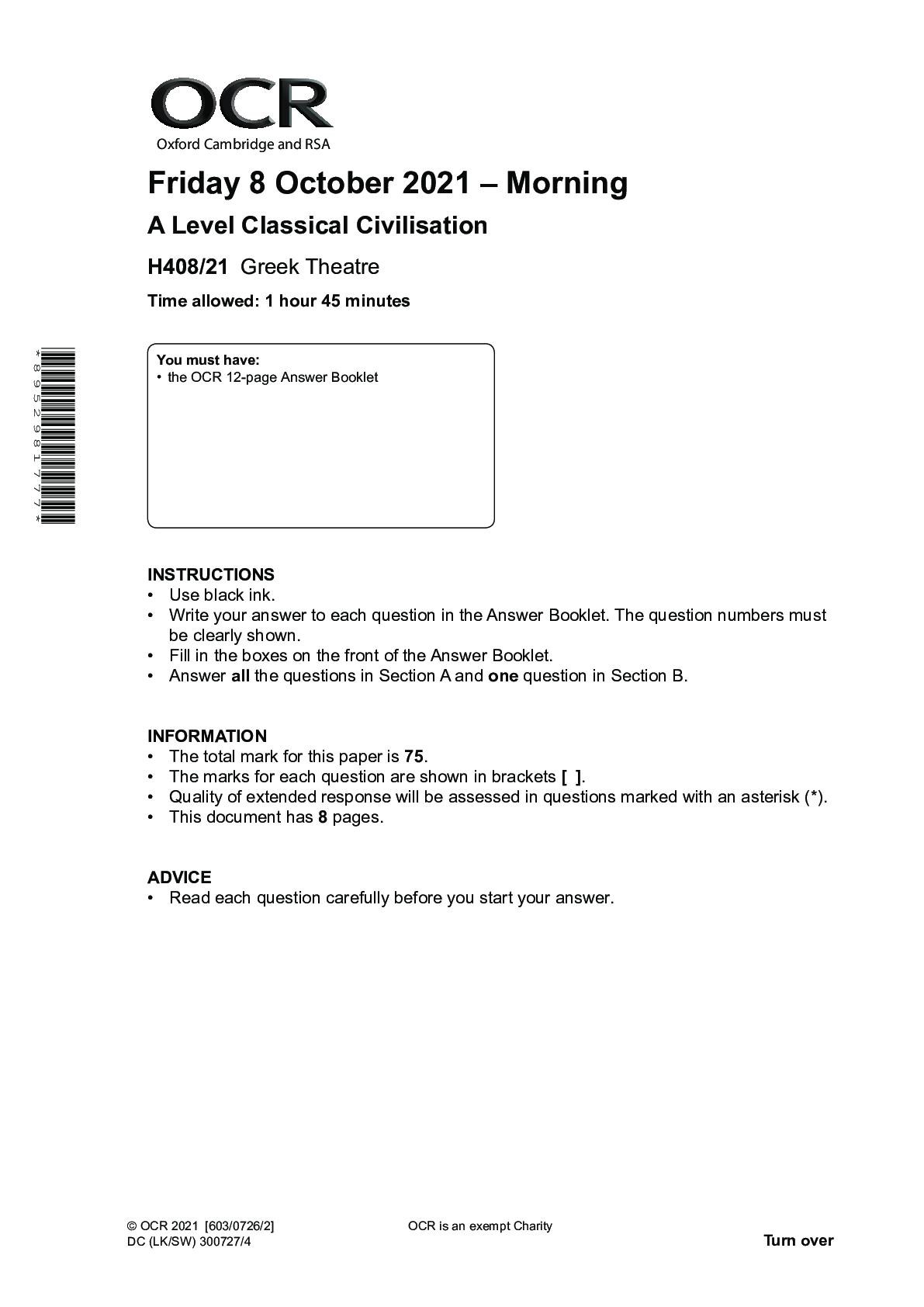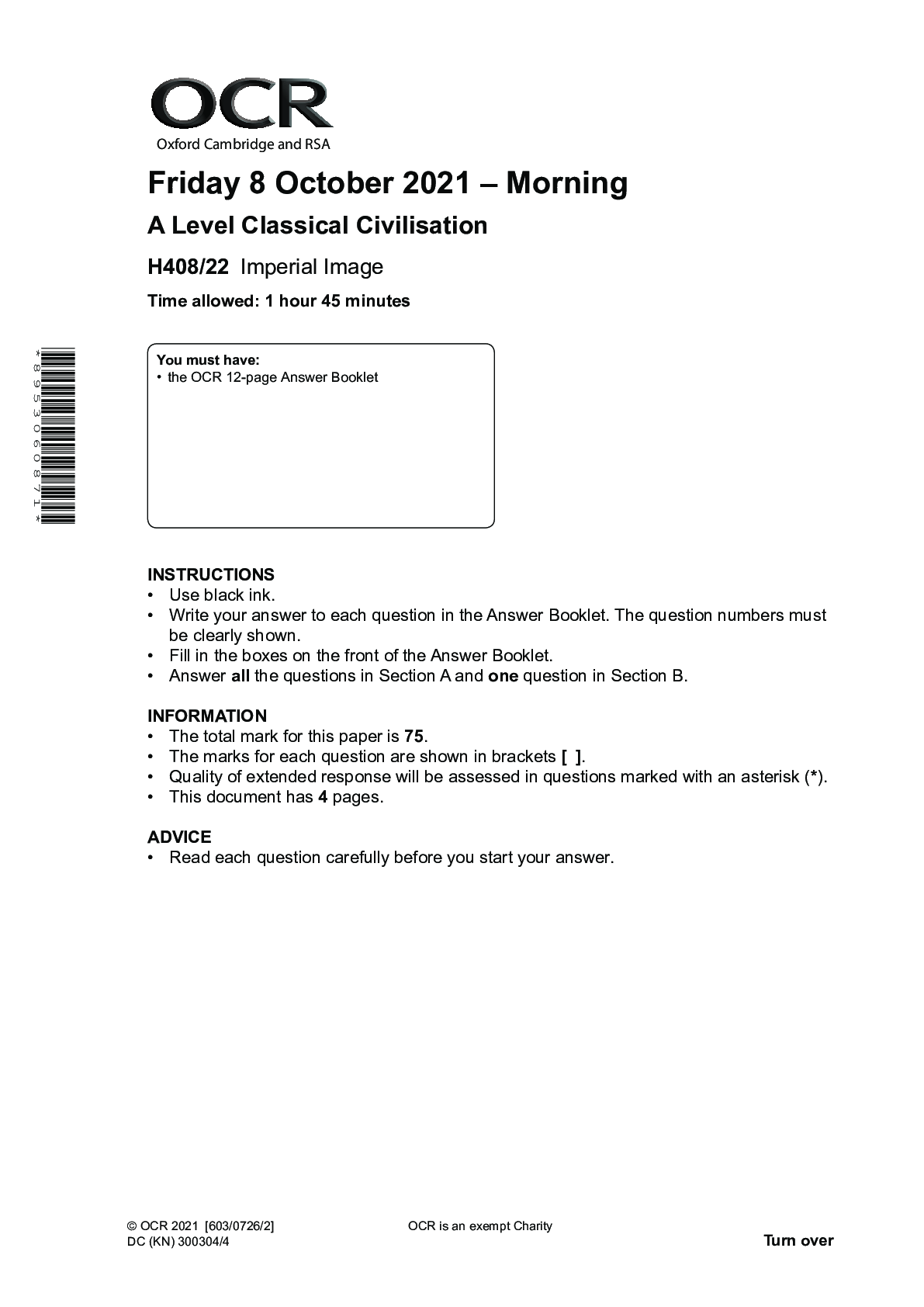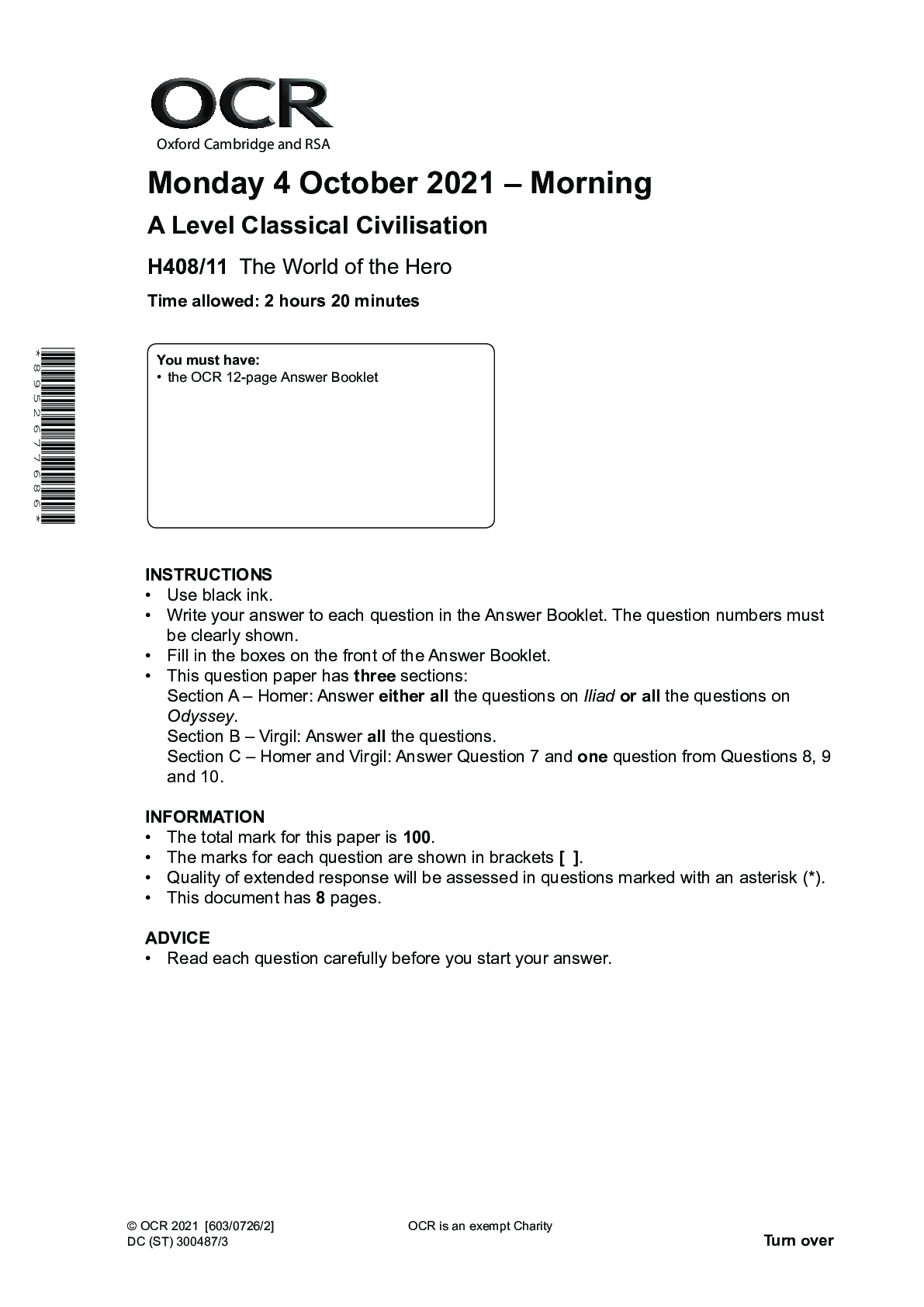Psychology > QUESTION PAPER & MARK SCHEME > WGU C180 Intro to Psychology Questions and answers, latest version. (All)
WGU C180 Intro to Psychology Questions and answers, latest version.
Document Content and Description Below
WGU C180 Intro to Psychology Questions and answers, latest version. empirical study - ✔✔Results of verifiable evidence from a systematic collection and analysis of data that has been objective... ly observed, measured, and undergone experimentation. Basic research - ✔✔research that answers fundamental questions about behavior. Applied research - ✔✔research that investigates issues that have implications for everyday life and provides solutions to everyday problems. Basic research - ✔✔Expands knowledge on an area of research interest but does not seek to promote change in behavior or mental state. Empirical Research - ✔✔Collects and analyzes data on areas of research interest using scientific measures to gain knowledge for knowledge's sake or to promote changes in behavior or mental states. Applied Research - ✔✔Applies research findings towards well-being, e.g. change in behavior or mental state. Mentalism - ✔✔type of performing art in which the performer appears to read the mind of another. Such powers may seem to be the result of psychic or paranormal practices, but in reality is the result of a combination of suggestion, misdirection, and psychology. Hypnosis - ✔✔a therapeutic technique employed by some clinicians to facilitate increased suggestibility and dissociated experiences. Consciousness - ✔✔our subjective awareness of ourselves and our environment. dualism - ✔✔the mind (or soul) and the body are separate entities monism - ✔✔consciousness and the mind are biologically based and exist within the brain cognitive neuroscience - ✔✔looks to correlate brain activity to behavior through the use of functional brain imaging negative emotional reactions - ✔✔occur when we are not living up to our anticipated goals or expectations or when we believe that other people perceive us negatively maladaptive behaviors - ✔✔use of alcohol or other psychoactive drugs, to escape from consciousness Developmental psychology - ✔✔the physiological, behavioral, cognitive, and social changes that occur throughout human life, which are guided by both genetic predispositions (nature) and environmental influences (nurture). Birth to 18 months - ✔✔Trust versus mistrust. The child develops a feeling of trust in his or her caregivers. 18 months to 3 years - ✔✔Autonomy versus shame/doubt. The child learns what he or she can and cannot control and develops a sense of free will. 3 to 6 years - ✔✔Initiative versus guilt. The child learns to be independent by exploring, manipulating, and taking action. 6 to 12 years - ✔✔Industry versus inferiority. The child learns to do things well or correctly according to standards set by others, particularly in school. 12 to 18 years - ✔✔Identity versus role confusion. The adolescent develops a well-defined and positive sense of self in relationship to others. 19 to 40 years - ✔✔Intimacy versus isolation. The person develops the ability to give and receive love and to make long-term commitments. 40 to 65 years - ✔✔Generativity versus stagnation. The person develops an interest in guiding the development of the next generation, often by becoming a parent. 65 to death - ✔✔Ego integrity versus despair. The person develops acceptance of his or her life as it was lived. schemas - ✔✔patterns of knowledge in long-term memory—that help them remember, organize, and respond to information. Classical conditioning - ✔✔learning that occurs when a neutral stimulus (e.g., a tone) becomes associated with a stimulus (e.g., food) that naturally produces a specific behavior. (Pavlov) Classical conditioning - ✔✔a type of associative learning that focuses on what happens before the behavior occurs. It must begin with a stimulus that naturally evokes a behavior in response. (Pavlov) unconditioned stimulus - ✔✔something (such as food) that triggers a natural occurring response unconditioned response - ✔✔naturally occurring response (such as salivation) that follows the unconditioned stimulus conditioned stimulus - ✔✔a neutral stimulus that, after being repeatedly presented prior to the unconditioned stimulus, evokes a response similar to the response to the unconditioned stimulus. Extinction - ✔✔reduction in responding that occurs when the conditioned stimulus is presented repeatedly without the unconditioned stimulus. spontaneous recovery - ✔✔The increase in responding to the CS following a pause after extinction Generalization - ✔✔the tendency to respond to stimuli that resemble the original conditioned stimulus discrimination - ✔✔the tendency to respond differently to stimuli that are similar but not identical second order conditioning - ✔✔an existing conditioned stimulus can serve as an unconditioned stimulus for a pairing with a new conditioned stimulus Operant conditioning - ✔✔learning that occurs on the bases of the consequences of behavior and can involve the learning of new behaviors. Operant conditioning - ✔✔the process of learning a new behavior by noticing the consequences of that behavior. law of effect - ✔✔the principle that responses that create a typically pleasant outcome in a particular situation are more likely to occur again in a similar situation, whereas responses that produce a typically unpleasant outcome are less likely to occur again in the situation. (Thorndike) Skinner box or operant chamber - ✔✔a structure that is big enough to fit a rodent or bird and that contains a bar or key that the organism ca [Show More]
Last updated: 1 year ago
Preview 1 out of 6 pages
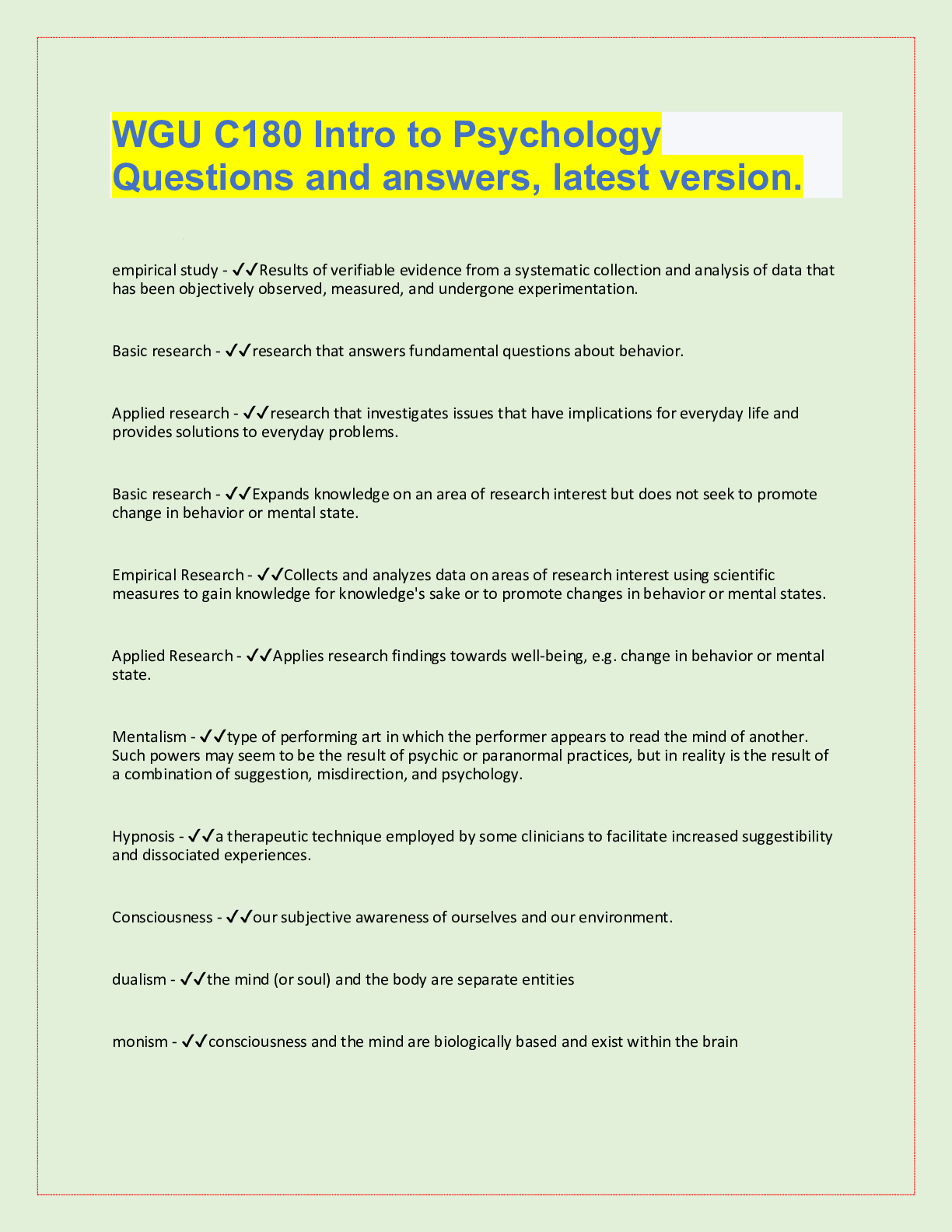
Also available in bundle (1)
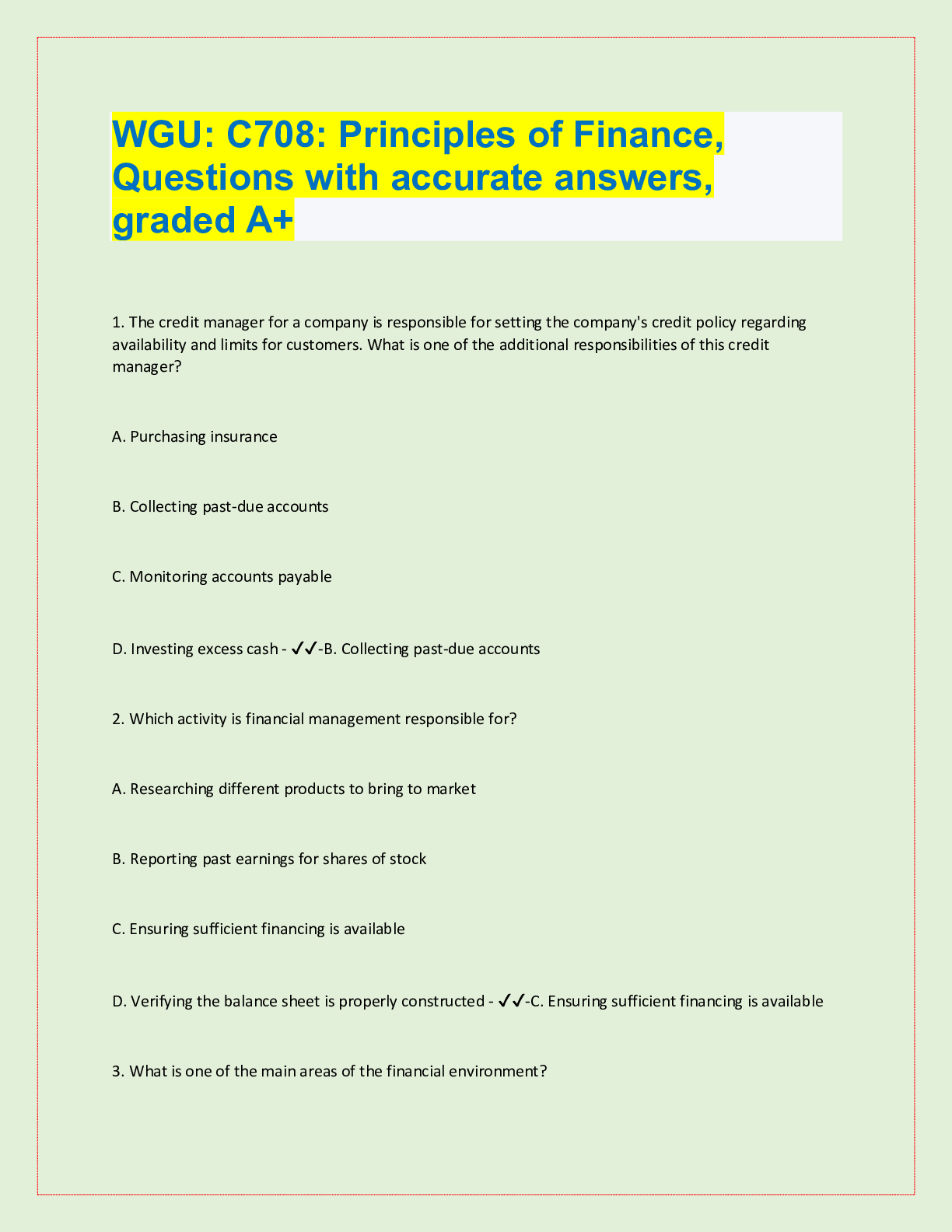
WGU C180 BUNDLE. VERIFIED
WGU C180 Units, Top Exam Questions and answers, 100% Accurate, graded A+
By Topmark 1 year ago
$30
13
Reviews( 0 )
Document information
Connected school, study & course
About the document
Uploaded On
Mar 13, 2023
Number of pages
6
Written in
Additional information
This document has been written for:
Uploaded
Mar 13, 2023
Downloads
0
Views
77


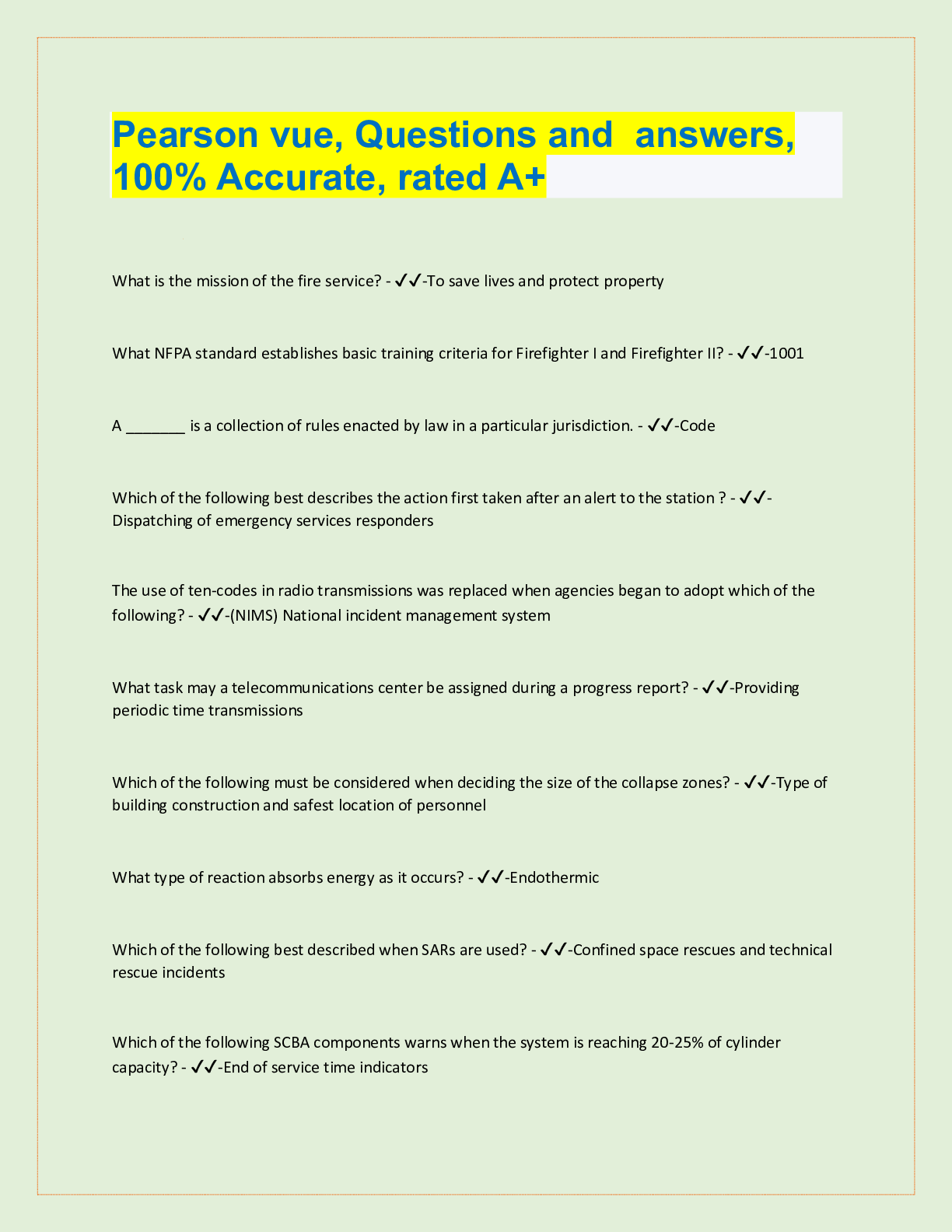

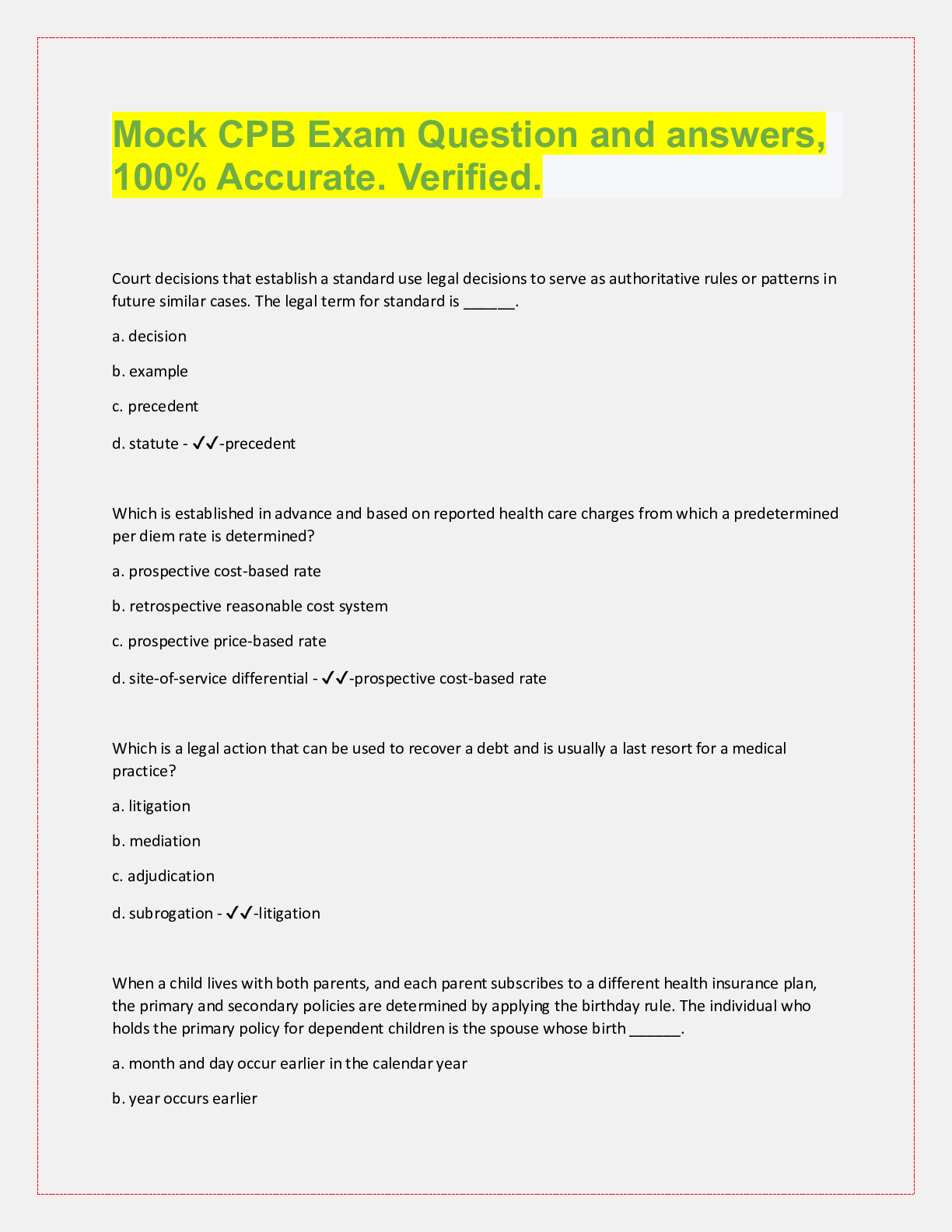
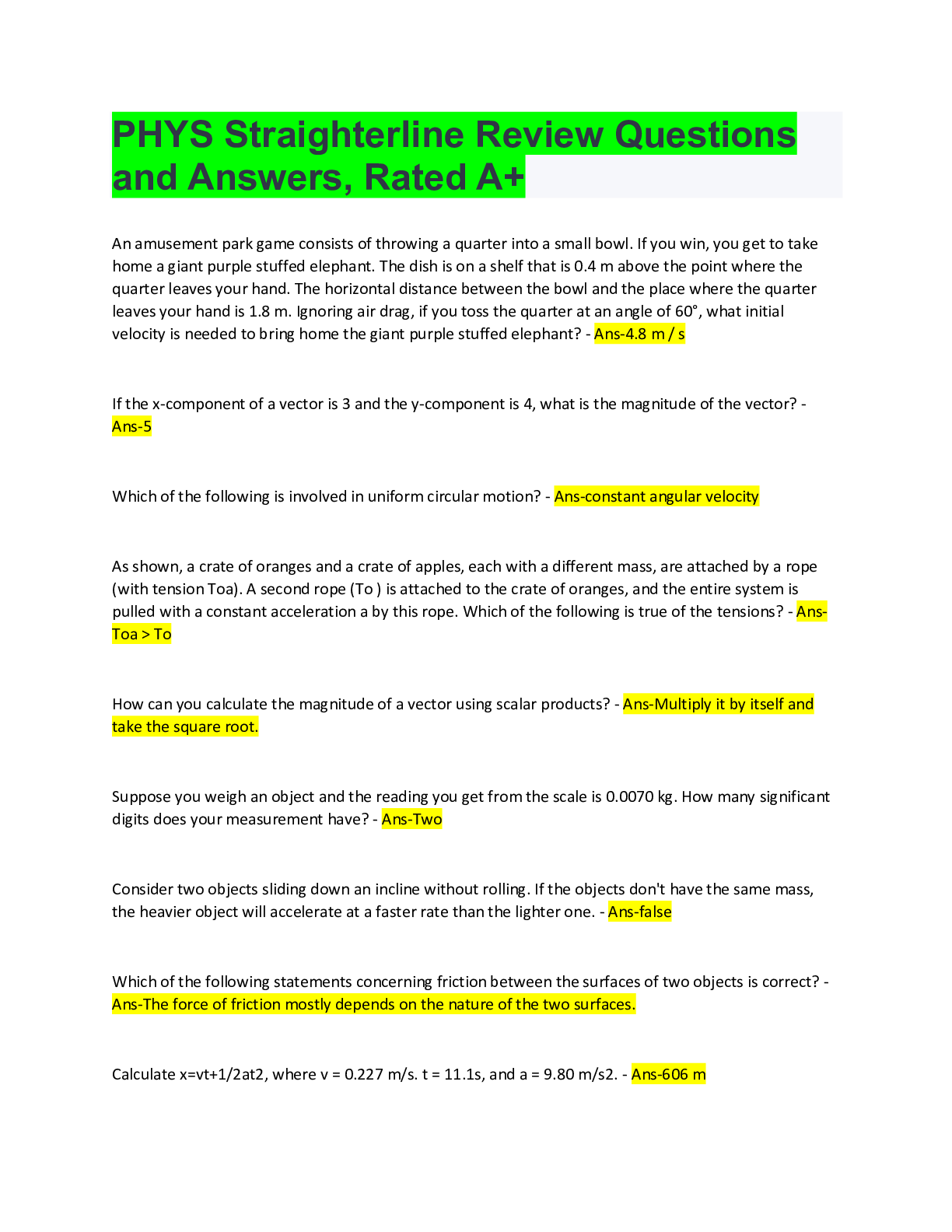

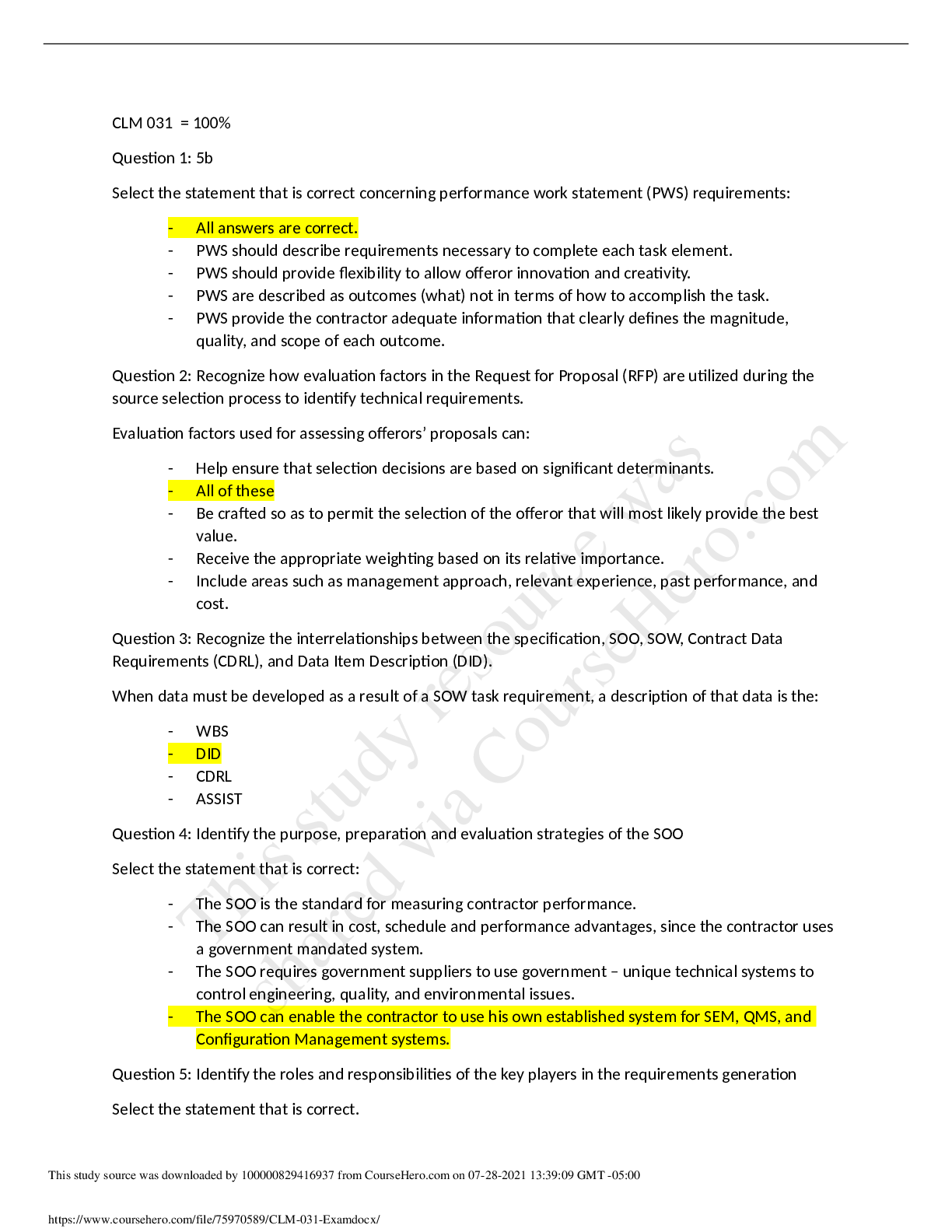
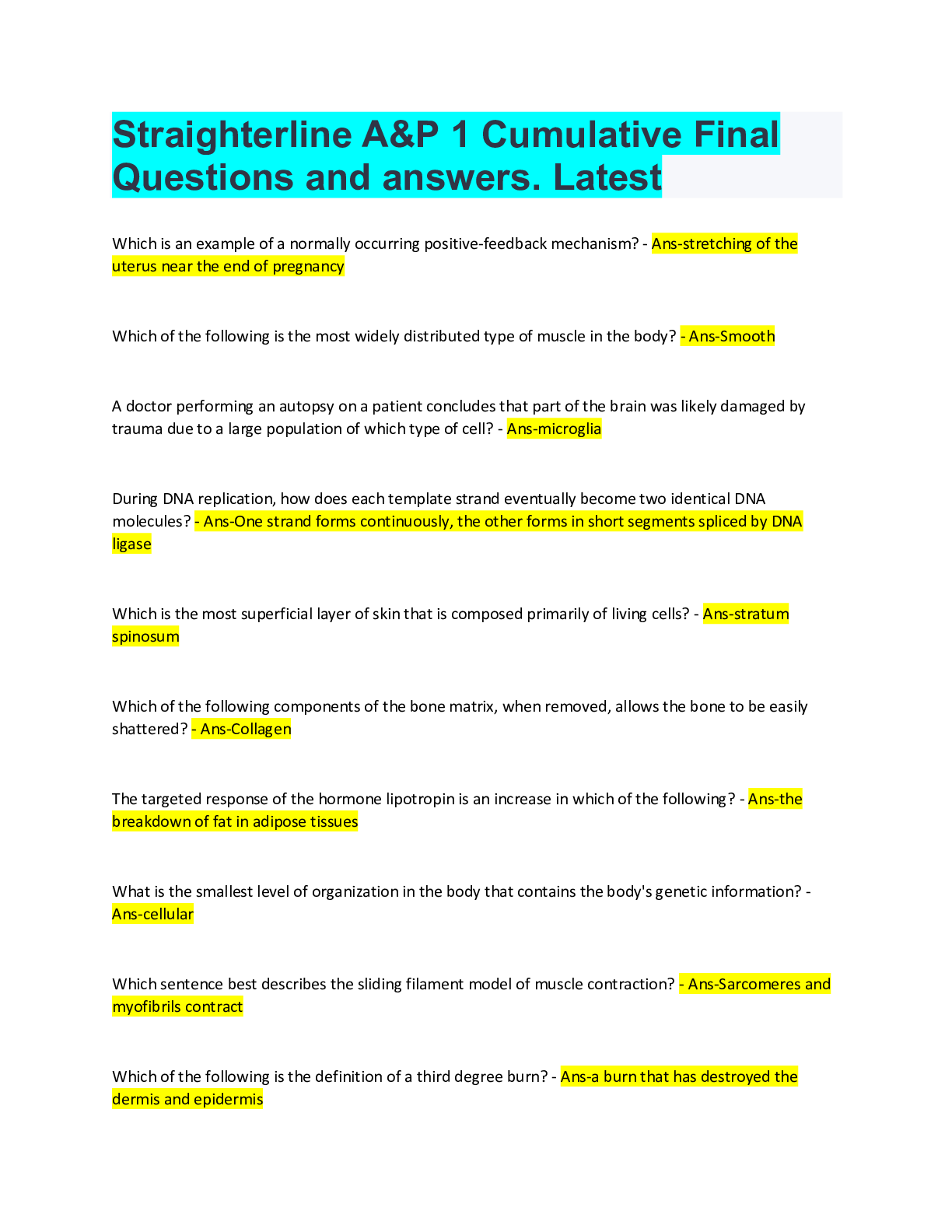

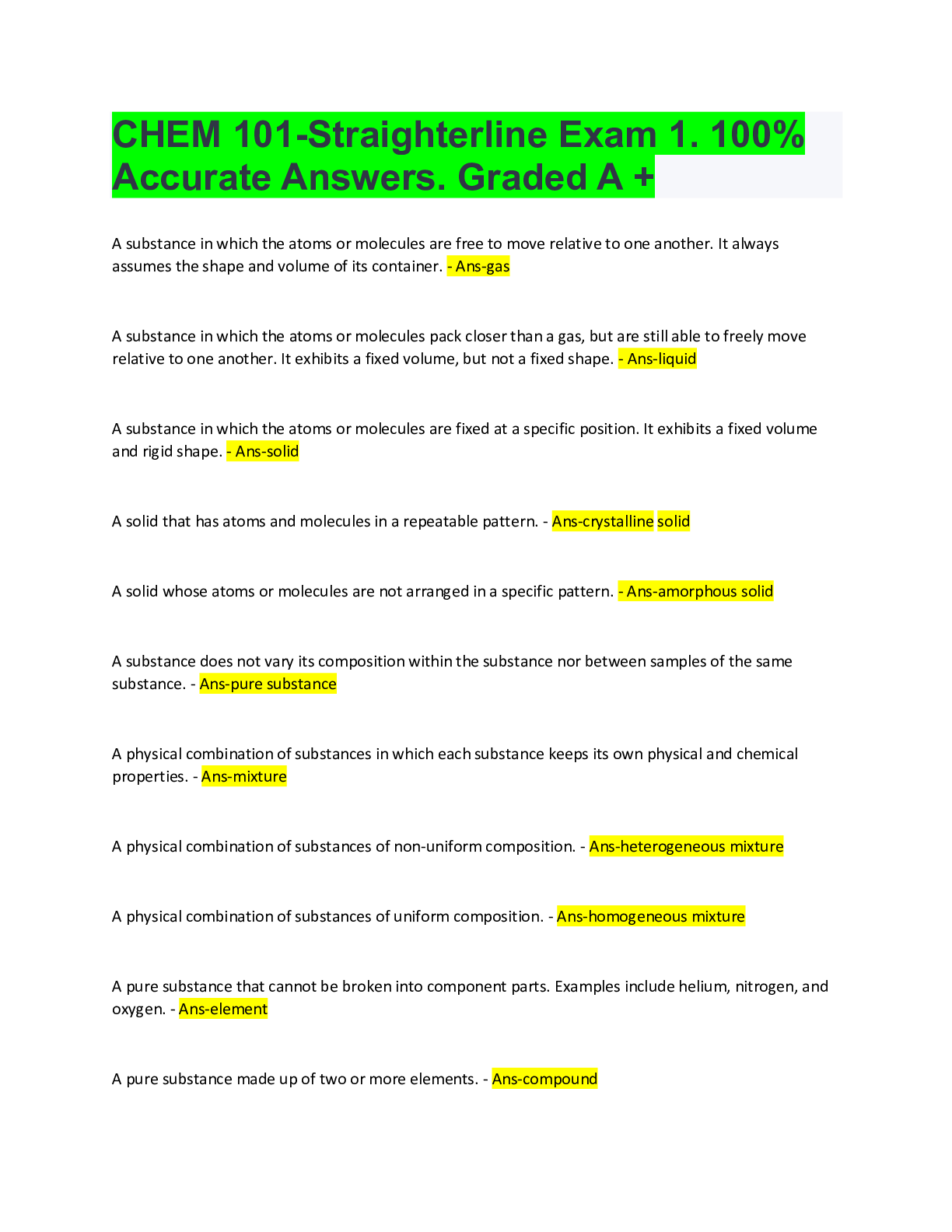
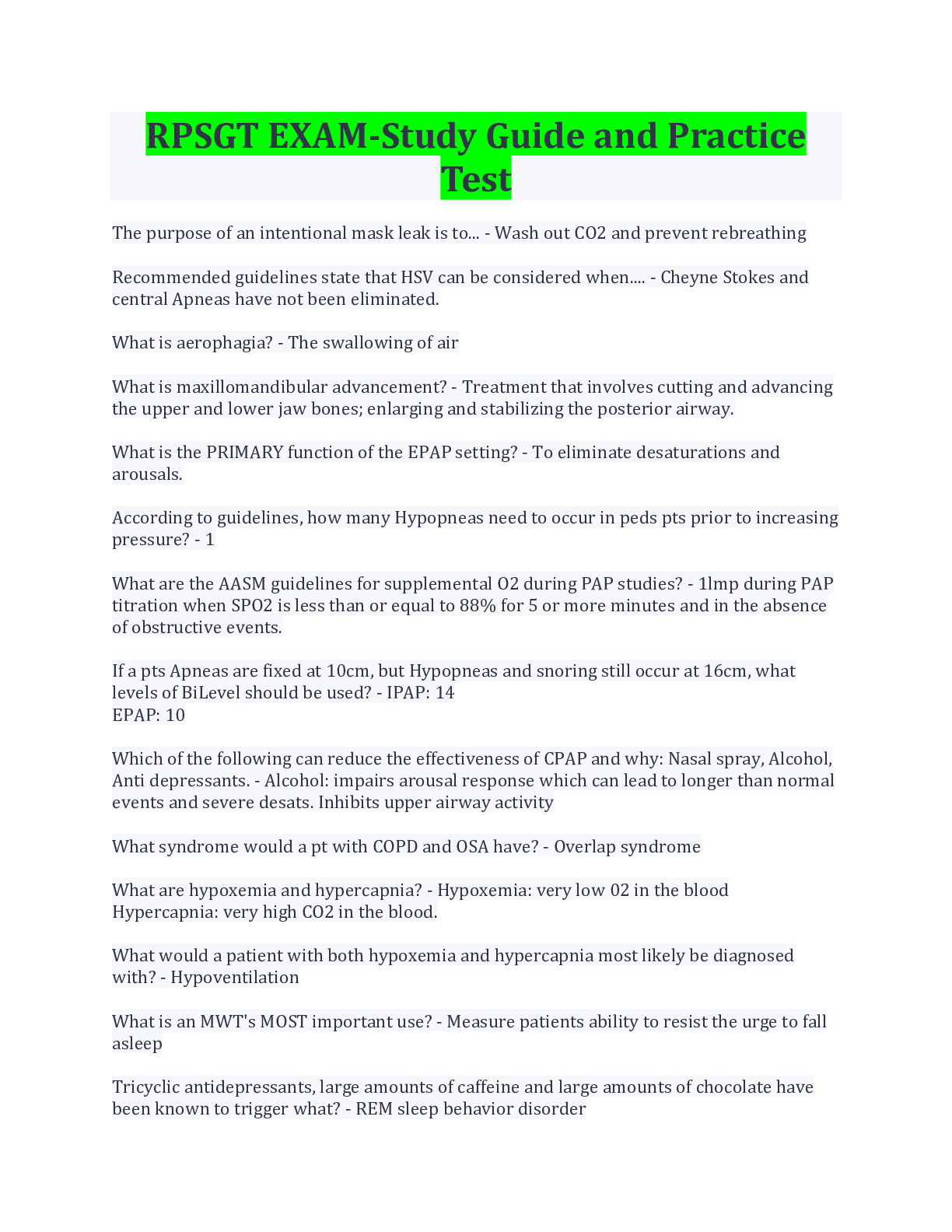

.png)

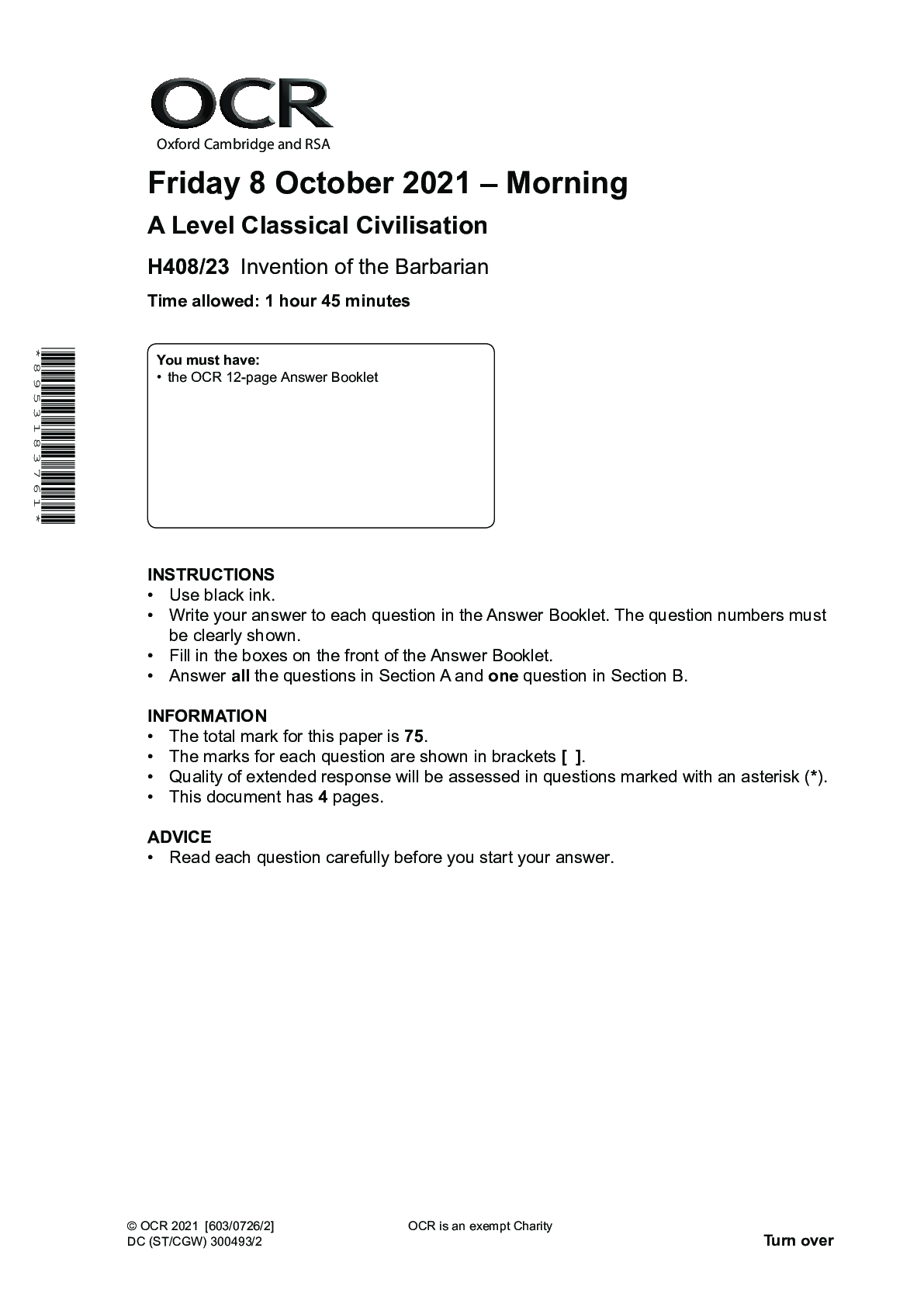

.png)
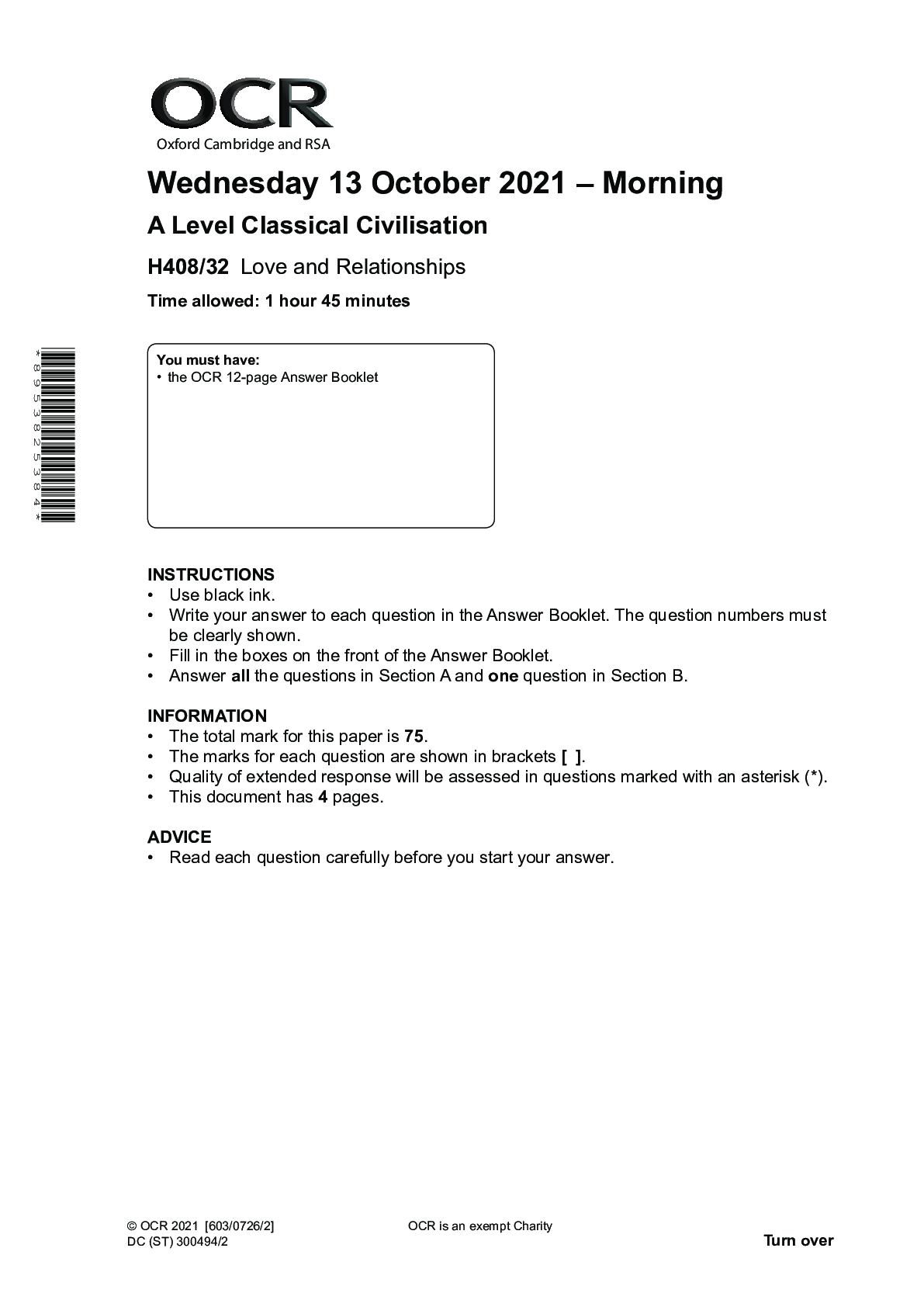
.png)
